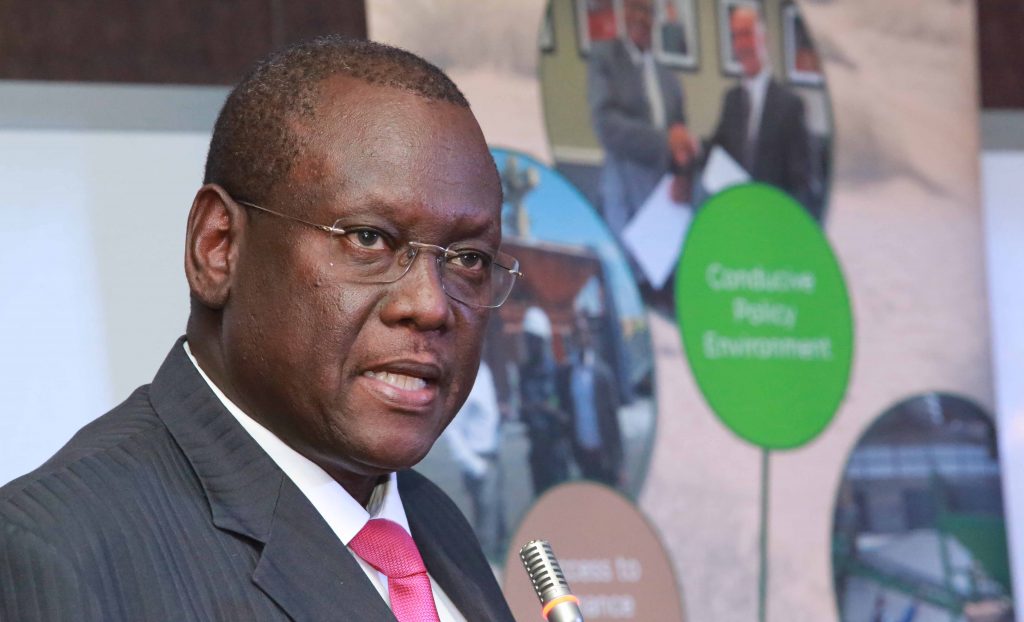
Intra-regional trade among the 21 Member countries of COMESA is estimated at 7%. This low performance is attributed to inadequate participation of all Member States in the COMESA Free Trade Area and the challenges they face in implementing regional commitments.
The situation is further aggravated by poor physical connectivity leading to high transportation costs, prevalence of non-tariff barriers, lack of information exchange about existing trading opportunities and prevalence of restrictive regulatory requirements in various markets.
Speaking during the opening of the 36th Meeting of the Trade and Customs Committee virtual meeting on Tuesday, October 27, 2020, Assistant Secretary General in Charge of Programmes in COMESA, Dr Kipyego Cheluget said despite these challenges, there still exist opportunities to leverage on.
“We need full application of the rules-based regime provided for under the COMESA Non-Tariff Barriers regulations and collective implementation of the commitments under the World Trade Organization Trade Facilitation Agreement,” he said.
“We also need to accelerate the negotiations on Trade in Services and make meaningful commitments in sectors that impact trading conditions in the region in terms of competitiveness such as financial sector, telecommunication, tourism and transportation.”
He added that the region needs to leverage more participation of the private sector in the integration process as business is the beneficiary of opportunities that are created by regional economic integration.
Among the issues deliberated upon during the three days meeting of trade and customs experts, was a report on Trade in Services containing modalities of resuming trade negotiations using virtual platforms. Before COVID-19, trade negotiations between countries took place in physical meetings.
The meeting also considered the development of customs training manuals on advance rulings, risk management and post clearance auditing, customs automation, amendments to the administrative provisions of the COMESA rules of origin and priorities identified for the Customs and Trade Facilitation Work Programme 2021-2023.
In July this year the Extra-ordinary Council of Ministers’ meeting directed the Secretariat to establish an online platform to facilitate exchange of information about production and availability of essential products within COMESA Member States. The platform was set up but has not been operationalized awaiting Member States to nominate their focal points that will manage content at the national level. So far eight Member States have submitted nominations.
Appealing to the Member to complete the nominations, Dr Cheluget said: “This is another opportunity to create a database on products, suppliers and regulatory requirements to address the information gap that has been identified as a constraint to the growth of intra-regional trade.”
To ensure that the COMESA trading arrangements and innovative trade and transportation instruments are used as benchmarks to African economic integration, Dr Cheluget spelt out the following priority issues: getting all COMESA Member States to participate in the COMESA FTA; identifying and eliminating NTB’s; implementing trade facilitation measures including the COMESA digital FTA; advancing services liberalization and building effective platforms for trade promotion and e-commerce.
“As we address issues related to the trading environment, work in other areas of cooperation such as increasing supply of goods for trade, establishment of regional value chains and addressing other supply side constraints should progress at an equally urgent pace,” he said.
He urged the Committee to establish a roadmap for effective implementation of the COMESA FTA that can be managed through a transparent monitoring and evaluation framework.
The recommendations of the trade and customs experts meeting will be tabled before the Intergovernmental Committee and the Council of Ministers’ Meeting scheduled in the last week of November 2020.

